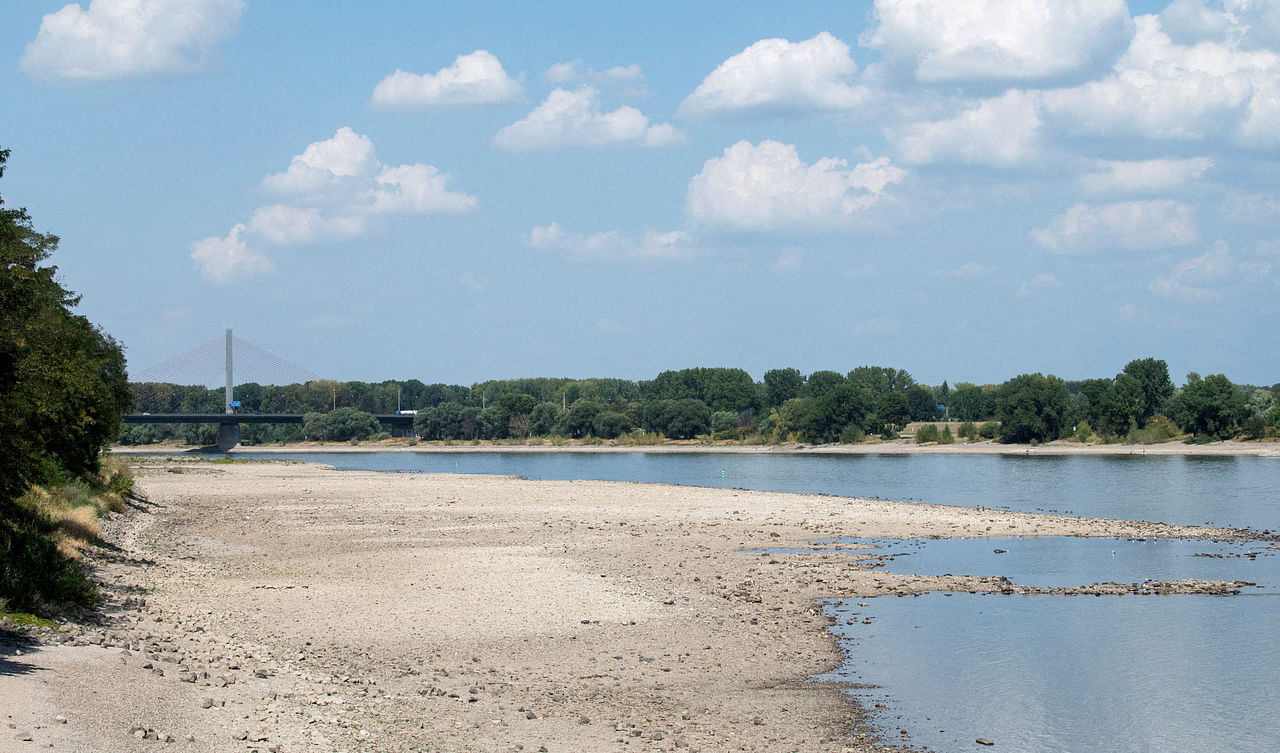NEW YORK/LONDON (REUTERS) - As droughts worsen across the world, investors are turning up the heat on companies wasting water and trying to pick winners from a sparse crowd of specialist listed companies looking to address the problem.
From Kenya to California and nearly half of Europe, a shortage of fresh water has grabbed the attention of policymakers and given millions of citizens a fresh window into the stressed state of the planet.
Against that backdrop, a group of investors managing nearly US$10 trillion (S$14 trillion) on Aug 16 said they planned to step up efforts to pressure boards to better manage the critical resource and could vote against directors of laggard firms.
The vested interest in doing so is clear: analysis from environmental disclosure platform CDP and Planet Tracker in May showed listed companies could face losses of at least US$225 billion from risks related to water.
"These are no longer far-off events; they are happening right now," said Dexter Galvin, CDP's global director of corporations and supply chains.
Last week, for example, Toyota suspended production at a plant in China's Sichuan province amid a drought-induced power shortage.
Awareness of how fraught the situation is - with 2.3 billion people currently living in water-stressed countries, according to the United Nations - has led a number of asset managers to launch equity funds to tap growing interest among investors to help find a solution.
Global data from Morningstar Direct shared with Reuters shows 23 water funds launched over the last five years, with a collective US$8 billion in assets at the end of July.
David Grumhaus, Jr, portfolio manager for the US$812 million Virtus Duff & Phelps Water Fund, said there has been a "spillover effect" as water crises have worsened.
"When the top news story is that boats can't make it through the Rhine River and Germans aren't going to get all their supplies, it does definitely make people think about water and our fund," he said.
Watered down?
Despite their name, water equity funds do not directly own water rights, which are highly localised and regulated, and instead invest in companies with business exposure to water, according to Morningstar senior manager research analyst Bobby Blue.
Common holdings include utility American Water Works Company, water technologist Xylem, and the Swiss industrial firm Georg Fischer AG, which works on the safe transportation of water.
The number of listed companies exclusively focused on this commodity, so-called pure plays, is small, fund managers and analysts said.
Simon Gottelier, co-manager of the US$282 million Thematics Water Fund, estimated that there are around 25 to 30 investable water utilities globally, as well as a "handful" of water technology businesses.
"Everyone wants to do something about water, but it's just difficult to do so through public equities," said Morningstar's Blue.

Managers therefore turn to a larger pool of companies which have water segments alongside other business units. Many of these focus on desalination, smart irrigation, and pollution prevention.
Cedric Lecamp, manager of the US$9.2 billion Pictet-Water Strategy, said his firm has identified 360 companies with a "meaningful exposure to the water theme".
His fund's largest position at the end of July was Danaher Corporation, which owns water quality businesses but derives most of its revenue from the life sciences and diagnostics sectors, according to company filings.
Water fund managers called this diversification beyond pure-play utilities not only necessary, but a potential asset given the range of companies working on water solutions.
"There hasn't been a massive explosion of new companies who are providing solutions in the water space," said Justin Winter, co-manager of the US$7.3 billion Impax Water Strategy. "But the outlook for the existing companies basically has never been better."
Xylem senior vice president Albert Cho said it forecasts revenue growth around 5 per cent through 2025 as customers look to boost water efficiency. That's not a high growth rate for a technology company, but Cho called it significant for the water sector, where buyers often are underfunded local utilities.
Many see digitising their infrastructure as a powerful tool to boost efficiency such as by spotting underground pipe losses.
With the right equipment, "you know where your water is and where it's leaking and can do something about it", Cho said.

